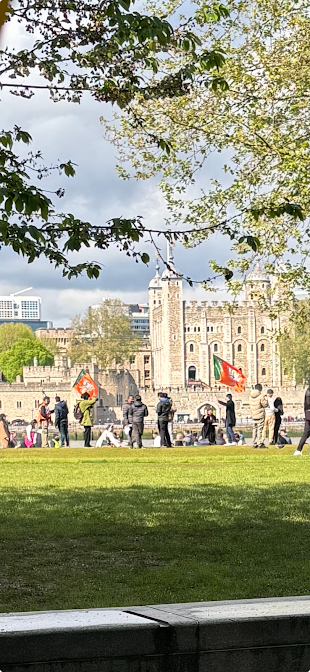I was out with the boss yesterday when I noticed a rather unusual sight. We were walking along the river Thames when we noticed a group of Indians in the distance who were waving the Indian National flag. As far as I knew, there was no major event going on in India. Then, I noticed that the flag that was being waved around was the flag of the BJP, the ruling party of Prime Minister Narendra Modi.
Mentioned this to my brother when we met at night and
he mentioned that India was not the only place where political parties looked
for votes outside their own borders. Turkish President Erdogan went to canvas
for votes amongst the Turks living in Germany.
These two incidents are telling us something. It’s
telling us that people who leave a country and chose to find work elsewhere are
becoming more valuable to their countries of origin. The Western powers, or
more specifically the British were the first pioneers of this. The Hongs in
Hong Kong were started by Scotsmen who left Scotland and the “homeland” to make
their fortune in the China trade. They built fortunes in the East and also
contributed the fortunes to their homes.
The Chinese have also done this. Say what you like
about Communist China and the CCP but for years, it did what it needed to do to
ensure that people of Chinese descent, whether they were in Hong Kong or Taiwan
or South East Asia would find investment opportunities “back home.” Taiwan’s
businessmen lead the charge to invest and build up China despite the fact that
China and Taiwan are nominally enemies on the political stage. After the
madness of the Cultural Revolution, Deng Xiaoping was quick to understand that
people of Chinese ancestry outside China were an asset that could be utilized.
Something similar happened in India. Prior to the
1990s and the opening of the economy, the NRI community were portrayed by the
Indian Government as losers who couldn’t hack in in their native lands. They
were known as “Not Required Indians.” However, as the economy loosened up in
the 1990s, the image of NRI’s within India changed. Suddenly they were the
people who had knowledge of the outside world and could bring back world
standards to India.
Where India has often lagged in the past, especially
when compared to China has been in the area of utilizing its diaspora. Talk to
enough Chinamen and they’ll talk about returning to China after their studies
or work outside of China. Talk to the Indians who leave, and plenty of them
will tell you that India is the last place on the planet they want to be. As
Wion news argued – Indians celebrate when one of their own CEO of a large multinational
without realizing that the CEO’s loyalty is to his (usually are) shareholders often
based elsewhere rather than to their country of origin. I think of the way
Indian media had to be told that Rishi Sunak was becoming Prime Minister of the
UK and not India. The Chinese by contrast head back to China to build unicorns
in China.
Could this be changing? Mr. Modi clearly believes that
the NRI community is an important base for him and in just about every foreign
trip he makes, he makes it a point to meet with leaders of the local NRI community.
This makes sense – who else would India and its opportunities than the people who
were brought there.
I believe its healthy that people leave their homeland
once in a while. It helps broaden horizons and improve skills. Too often we get
stuck in notions of loyalty and sticking in one place. However, the reality is
that we live in a world where people are increasingly mobile and are able to
access opportunities from all over the world. I think of Olam, which, while
listed in Singapore, makes all its revenue overseas.
How does a single operator work in this day and age. To
quote Odin from the Thor movies “Asgard Isn’t a place – it’s a people.” So,
instead of looking at China, solely as the People’s Republic, what unifies
Chinese people regardless of the passport they hold and where they live. The
same is true of Indians. Lock into a community and you get a broader range of
the market you are looking to tap into.
This is not to say nation states will lose their
importance. Places will always be there. However, countries are no longer blocks
belonging to a particular ethnicity and we need to understand that mobility creates
opportunities.











